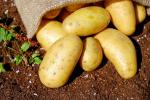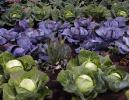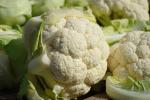H2020 BIOVALUE Project: Agent-based simulation tool from fork to farm that increases biodiversity in the agri-food value chain
- Type Project
- Status Signed
- Execution 2021 -2025
- Assigned Budget 5.993.562,5 €
- Scope Europeo
- Main source of financing Horizon 2020
- Project website BIOVALUE
The EU-funded BIOVALUE project will employ a bottom-up approach to develop the BIOVALUE tool, a dynamic and customizable tool for analyzing biodiversity in the agri-food value chain. Researchers will use it to introduce, model, evaluate, improve, produce, and disseminate specifically selected genetically diverse and underutilized crops and develop marketable and certified culinary products.
By responding to consumer demand for improved agrobiodiversity in agroecosystems, BIOVALUE will ensure the future commercial performance and viability of crops. Furthermore, a user-friendly, ready-to-use modeling framework will be used to generate a set of key performance indicators (KPIs) that measure the quality and impact of policies, environmental developments, and regulatory compliance. The goal is to introduce genetically diverse and underutilized crops into the value chain, which will contribute to improving biodiversity.
The BIOVALUE project's approach is to establish a holistic, multi-stakeholder perspective to analyze the link between biodiversity, agri-food value chain actors, the environment, consumer food preferences, and health. By employing a bottom-up, vertical approach to develop the BIOVALUE TOOL, a dynamic and customizable agri-food value chain versus biodiversity analysis tool, the proposal seeks to introduce, model, evaluate, improve, produce, and disseminate specifically selected genetically diverse and underutilized crops (cereals, pulses, leafy vegetables, and fruits) and develop marketable, certified, and labeled final culinary products incorporating them (recipes for dishes and processed foods), which enhance agrobiodiversity in the applied agroecosystems and attract consumers, ensuring their future market performance and, at the same time, their cultivation viability.
Furthermore, within a ready-to-use, modeled framework, the project will produce a set of key performance indicators (KPIs) intended to measure the quality and impact of policies, environmental developments, and regulatory compliance for the introduction of genetically diverse and underutilized crops into the value chain. These indicators, by design, are scalable to further enhance biodiversity in the value chain. Ultimately, this expanding nature is highlighted by the complementary effects of BIOVALUE's final processed and unprocessed dishes and food products, such as low energy consumption, the resilience of the environmental crop to marginal landscapes and future climates, as well as nutritional and health benefits. By incorporating market power into the entire approach, the proposal can lead to self-sustaining biodiversity sustainability in the future.
- ARISTOTELIO PANEPISTIMIO THESSALONIKIS (ARISTOTLE UNIVERSITY OF THESSALONIKI)






